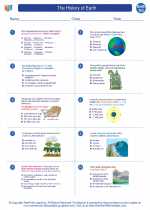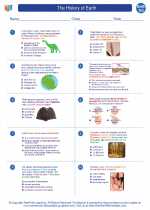Wetlands: Explanation and Study Guide
Overview
Wetlands are areas where water covers the soil, or is present either at or near the surface of the soil all year or for varying periods of time during the year. They are critical ecosystems that provide habitat for a diverse range of plant and animal species, and offer important ecological services such as water filtration, flood protection, and carbon storage.
Types of Wetlands
- Swamps: Forested wetlands with trees and shrubs.
- Marshes: Grassy wetlands with non-woody plants.
- Bogs: Acidic wetlands with spongy peat deposits and often dominated by mosses.
- Fens: Peat-forming wetlands that are fed by groundwater and are less acidic than bogs.
Importance of Wetlands
Wetlands play a crucial role in maintaining water quality, supporting biodiversity, and providing valuable ecosystem services. They act as sponges, absorbing and storing excess water during periods of heavy rainfall, which helps to reduce flooding in downstream areas. Additionally, wetlands serve as breeding grounds and nurseries for many fish and wildlife species.
Threats to Wetlands
Wetlands are under threat from human activities such as draining for agriculture, urban development, and pollution. These activities can lead to habitat destruction, loss of biodiversity, and disturbance of the natural hydrological cycle.
Conservation of Wetlands
Efforts to conserve wetlands include the establishment of protected areas, restoration of degraded wetlands, and the implementation of policies and regulations to prevent further destruction. Public awareness and education about the importance of wetlands are also key components of conservation efforts.
Study Guide
- Define wetlands and describe their characteristics.
- Identify and differentiate between different types of wetlands (swamps, marshes, bogs, fens).
- Explain the ecological importance of wetlands and their role in providing ecosystem services.
- Discuss the major threats to wetlands and their conservation.
[Wetlands] Related Worksheets and Study Guides:
.◂Earth Science Worksheets and Study Guides High School. The History of Earth

 Worksheet/Answer key
Worksheet/Answer key
 Worksheet/Answer key
Worksheet/Answer key
